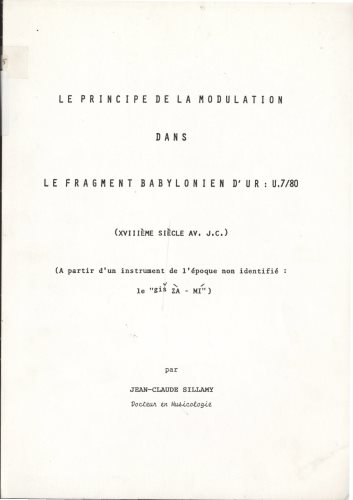
Jean-Claude Sillamy
All rights reserved, Ajaccio, 1991.
From the study of a Babylonian fragment of the 18th century B.C., this work by Jean-Claude Sillamy, PhD in musicology and specialist of Antique music (Sumer, Babylon, Mesopotamia…), shows clearly the principles of the modulation in Babylonian music.
Babylonian modes are not based on octaves but on fourths and fifths, which can vary the internal notes by moving up or down strings on the zither.
Learn more about Jean-Claude Sillamy
Browse other books by the author



